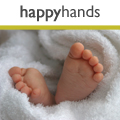Baby Clinic
Work
Working and Breastfeeding
Many working mothers have no choice but to return to work before they would like to stop breastfeeding. Formula is absolutely fine but there are options for mums who wish to breastfeed. If you still wish to breastfeed with careful planning and consideration you can still ensure your baby is breastfed. Here are a few tips for mothers who are planning on returning to work with a few added quotes from breastfeeding expert Geraldine Miskin.
Why carry on breastfeeding?
Breastfeeding for longer allows you to keep that bond you have established with your baby through breastfeeding and save money in the process. Human milk contains exactly what your baby needs, so breastfeeding for up to six months or beyond is beneficial during they’re first year and beyond should you choose to do so.
"Knowing how you can continue to provide breast milk and all the benefits it has to offer once you go back to work, will make the transition from home-mum to working-mum a little easier’’ Geraldine Miskin
Pump it
“Start expressing 3 months before you are due to go back to work. Breast milk can be kept in the freezer for 3 months, so you can start using this milk as soon as you are back at work.” Geraldine Miskin
Your milk levels are highest in the morning, making it a great time to express. Expressing in the mornings after a feed and after work is a good way to maintain a good milk flow. Feeding during the day will ensure you can provide plenty of milk. It is worth discussing with your employer a time that you could express at work and if you are the first to express milk at your place of work make sure when you approach your employer you have all the information they may need to hand.
Express, freeze, defrost and offer your milk to baby via a bottle regularly before you go back to work. Geraldine Miskin
Storage
Once you have spent time pumping there are ways to ensure none of your precious milk is wasted or tainted. A good amount to store would be 2-4 ounces and Breast milk could be stored in glass or a hard sided plastic bottle. There are also freezer milk bags and disposable bottle liners designed especially for storing human breast milk. You can store it in the fridge (not in the door) for up to 8 days. For longer periods store your milk in the freezer for up to 3 to 4 months and again this should not be kept in the door. If you have further questions about storage when your baby is premature, has a compromised immunity or has been ill you should consult your doctor about how long to store.
“Some mums find that their milk is not suitable for freezing. If this is true for you, the sooner you know the better so that you can find an alternate plan or method of storing milk.” Geraldine Miskin
Once you come to use your milk you should thaw it by running it under the tap or putting a little bit of thawed milk into the frozen milk. It should not be boiled and you can store it for up to 24 hours after that in the fridge.
Routine
Related Articles
A Great Day Out at The Baby Show, Excel
Preparing Premature Infants for School
BornFree – the natural approach to bottles
Bottle-feeding: keeping it natural
BabyBjörn venture into drinking cups
Maclaren create new Buggy Workouts
Buyer's guide to nappy rash treatments
Related Products
Chicco, Sure-Safe Adjustable Breast Pump
Related Forum Topics
Forums: Baby, What isn't working on babydirectory.com
Re: fussy eater
Clare, Mother of 2, London
Re: Has anyone tried Zita West's fertility supplements? Or what else worked for you?
Guider, Mother of 1, Leicestershire
Re: Try this perfect family lunch in Hyde Park
Clare, Mother of 2, London
Re: does any1 know anything that will help me get my baby into a better sleep routen?
clarejayne, Mother of 1, Nottinghamshire
Have Your Say
Be the first person to comment on this article, just post a comment below.






In order to post a comment you need to be a member. Join Now | Sign in